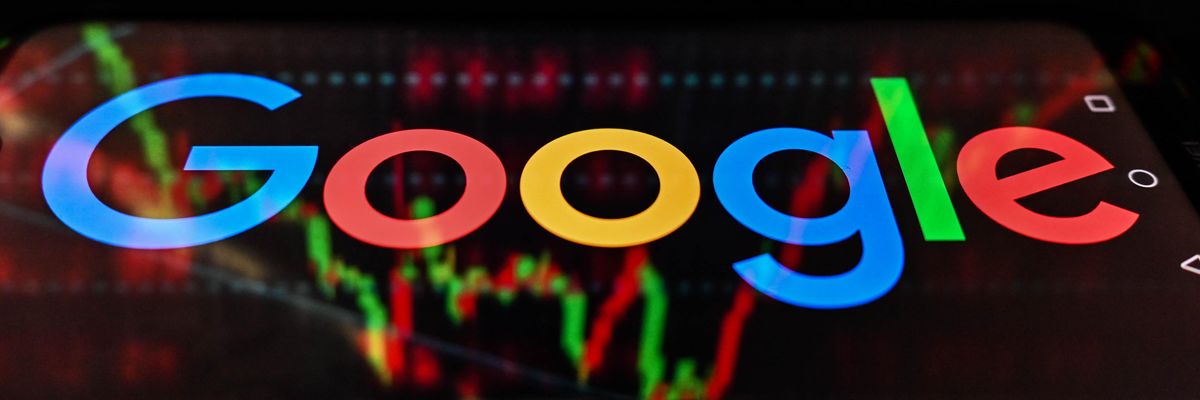The European Commission won praise from anti-monopoly campaigners and experts around the world on Wednesday by declaring that Google's dominance of online advertising violates competition rules and should be resolved with forced divestment.
The commission—an executive arm of the European Union—detailed the preliminary findings of its probe in a statement of objections on Google's practices in advertising technology, or ad tech. The company operates two ad buying tools, Google Ads and DV 360; a publisher ad server, DoubleClick for Publishers (DFP); and an ad exchange, AdX.
"Google has a very strong market position in the online advertising technology sector," said Margrethe Vestager, the commission's executive vice-president in charge of competition policy. "It collects users' data, it sells advertising space, and it acts as an online advertising intermediary. So Google is present at almost all levels of the so-called ad tech supply chain."
"Our preliminary concern is that Google may have used its market position to favor its own intermediation services," Vestager explained. "Not only did this possibly harm Google's competitors but also publishers' interests, while also increasing advertisers' costs. If confirmed, Google's practices would be illegal under our competition rules."
"The commission understands that Google's position as a buyer, broker, and owner of a digital advertising exchange poses pervasive conflicts of interest."
Specifically, the commission found that since at least 2014, Google has "abused its dominant positions" by "favoring its own ad exchange AdX in the ad selection auction run by its dominant publisher ad server DFP by, for example, informing AdX in advance of the value of the best bid from competitors which it had to beat to win the auction."
The company has also violated E.U. rules by "favoring its ad exchange AdX in the way its ad buying tools Google Ads and DV360 place bids on ad exchanges," the commission said. "For example, Google Ads was avoiding competing ad exchanges and mainly placing bids on AdX, thus making it the most attractive ad exchange."
"In this particular case, a behavioral remedy is likely to be ineffective to prevent the risk that Google continues such self-preferencing conducts or engages in new ones," the statement of objections says. "The commission's preliminary view is therefore that only the mandatory divestment by Google of part of its services would address its competition concerns."
The commission also stressed that sending a statement of objections "does not prejudge the outcome of the investigations." Google can now respond in writing and request an oral hearing before representatives of the commission and national competition authorities—and Dan Taylor, the company's vice president of global ads, signaled Wednesday that it plans to do so.
"Our advertising technology tools help websites and apps fund their content, and enable businesses of all sizes to effectively reach new customers. Google remains committed to creating value for our publisher and advertiser partners in this highly competitive sector," Taylor said. "The commission's investigation focuses on a narrow aspect of our advertising business and is not new. We disagree with the EC's view and we will respond accordingly."
Meanwhile, others applauded the commission's move and highlighted that it aligns with a lawsuit the U.S. Department of Justice and eight states filed against Google in January as well as an ongoing antitrust investigation in the United Kingdom.
"Antitrust enforcers worldwide agree: We must break up Google's advertising monopoly," said Katherine Van Dyck, senior counsel at the American Economic Liberties Project, in a statement. "Like the Department of Justice and a coalition of U.S. state attorneys general, the commission understands that Google's position as a buyer, broker, and owner of a digital advertising exchange poses pervasive conflicts of interest."
"They have also determined that Google regularly abuses its dominant position, undermining smaller businesses, the news ecosystem, and, in fact, the entire digital market," Van Dyck continued. "A breakup is long overdue and, as the commission said in its statement, it is the only way to stop Google's anti-competitive behavior."
Open Markets Institute Europe similarly commended the commission "for its intention to break up Google's online advertising monopoly," saying in a statement that "the evidence is overwhelming that Google has used its dominance across the ad tech supply chain to favor its own platforms," and divestment is "the only way to address this egregious conflict of interest."
"After years of trying to unsuccessfully rein in Big Tech—especially Google—through ineffective fines and behavioral remedies, we welcome the commission's newfound willingness to use structural measures to tackle the platforms' dominance. Today's announcement is also a clear illustration of the power competition authorities have when they work in parallel," Open Markets said, pointing to the related actions in the U.S. and U.K.
"This isn't just about economics—Google's monopoly over online advertising poses a fundamental threat to the health of our free media and ultimately, the resilience and integrity of our democracies," the group added. "The bullying tactics deployed by Google and Facebook in Australia, Canada, California, and other jurisdictions when asked to pay for valuable news content are clear evidence of this threat. Regulators around the world must move quickly to rein in these unaccountable giants and rebuild a truly open digital economy."
